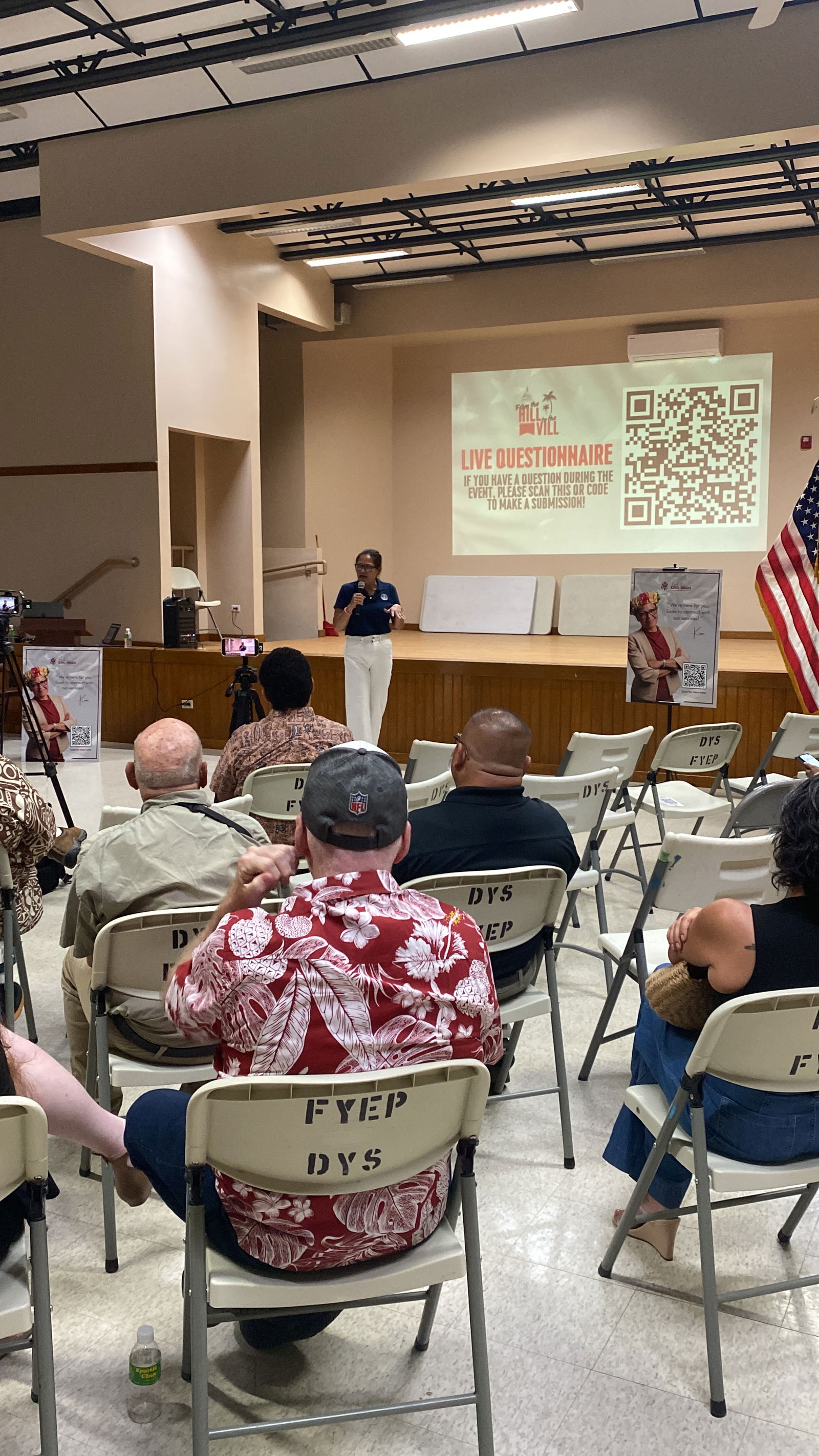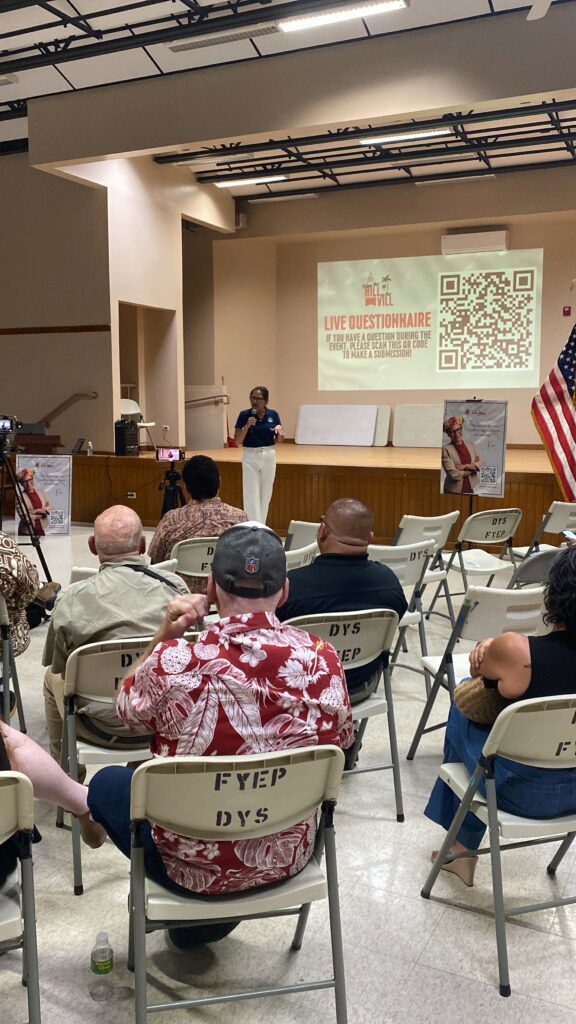
U.S. Congresswoman Kimberlyn King-Hinds speaks at the recently held “From the Hill to the Vill” community meeting in Kagman.
U.S. Congresswoman Kimberlyn King-Hinds met with constituents at the Kagman Community Center on Wednesday for her “From the Hill to the Vill: Community Conversations,” a public meeting to discuss issues and programs she is raising and working on in Washington, D.C.
Part of the discussion focused on the China tourism market. The congresswoman acknowledged criticism for trying to open “all markets” but stressed that doing so would bring more customers to the CNMI, benefiting local businesses.
“As far as I’m concerned, what these tourists represent is money,” King-Hinds said. “Money for people to pay their bills, money for people to go out and patronize businesses, money for the government to pay the police. That’s what it represents to me.”
During the meeting, Travis Jones, owner of Last Shot Bar in Chalan Kanoa, described how the economic downturn has hurt his business. He said that his lease will not be renewed and asked whether federal initiatives could make reinvesting in his bar feasible.
“I’ve always said that I’m going to keep this bar for the rest of my life. Now that this [move and nonrenewal of lease] is happening, my concern is the cost of relocating or doing something different,” Jones said. “I struggled over the last six months like everyone else. What’s coming down the pipe that will convince me to reinvest more money? Who will show me that it’s worth putting another chunk of money into this?”
King-Hinds responded that reinvesting in the tourism industry and focusing on “all markets” will bring customers.
“That’s the fastest way to improve the economy by revitalizing the tourism industry, because it trickles down to everybody,” she said. “Our work is cut out for us. It’s happening but not as fast as we all like. That’s why the U.S. Department of Transportation has taken notice.”
She also highlighted the “district first” mentality in Washington, where representatives and senators often prioritize their own constituents’ needs before supporting others.
“All too often in Washington, D.C., if you don’t sit on the Armed Forces Committee, whether in the Senate or the House, you don’t know where the Marianas are,” she said. “If you come from Wisconsin District 17, you don’t care about the Marianas; you care about Wisconsin 17. And what they care about in Wisconsin 17 is probably soybeans, because that’s their industry. Tourism is not their industry. So these conversations that are being had does not impact them, so my job is to break down those barriers.”
King-Hinds noted that gridlock, politics, and the focus on campaign fundraising can affect the support she receives for CNMI issues.
“I wish I could say something will change tomorrow, but I’d be lying … The work is happening. We’re going to keep pushing hard and keep trying,” she said.
Del Benson asked King-Hinds to comment on “fear-mongering” in Washington regarding China and expressed general support for adding China as a tourism market.
“We don’t have much going. There’s nothing with Japan, China was cut off, Korea is faltering,” Benson said. “Why does Fiji get tourists from the world? They’ve had years of development, fine-tuned their approach, and offer a lot. We are a worn out destination. To bring people, we’ve got to change what we’re doing, which requires investment. China is really the big market. There’s this ‘boogeyman’ fear of Chinese tourists. We have to build a sustainable tourist base.”
King-Hinds said certain U.S. think tanks sometimes contribute to pushback against China.
“There are people in the House and the Senate who have certain beliefs about certain things and are directly tied to these think tanks,” she said. “When we have these… ‘boogeyman’ narratives are pushed, even among our own community, it makes that job that much more difficult. Because now Washington is saying ‘well there’s people in your community who believes that.'”
She also discussed national security considerations related to tourism and ongoing trade negotiations with China.
“For the past couple of years, we’ve been talking about our tourism industry in terms of national security,” she said. “But as it relates to tourism, we’ve been caught up in trade negotiations with China …. [O]ngoing discussions with Annex VI [of the U.S.-China Air Transportation Agreement] have created challenges.”
Annex VI exempts the CNMI from the flight frequency limitations between the U.S. and China.
“We’re exploring every option because no one person has a copyright on good ideas,” King-Hinds said.











